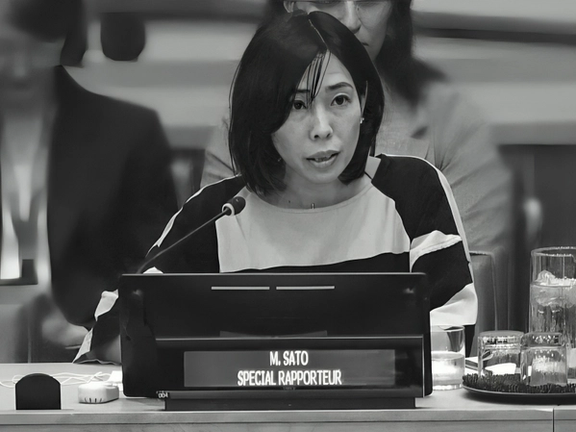“Post-conflict situations must not be used as an opportunity to suppress dissent and increase repression,” the experts said in a statement, referring to the aftermath of Iran-Israel conflict which began on June 13 and ended with a ceasefire.
The experts which included UN Special Rapporteur on the situation of human rights in the Islamic Republic of Iran, Mai Sato, said they were alarmed by reports that at least six individuals, including three Kurdish men, had been executed on charges of “espionage for Israel.”
They also cited the arrests of hundreds of people, including journalists, human rights defenders, social media users, foreign nationals — particularly Afghans — and members of ethnic and religious minorities such as Baha’is, Kurds, Balouchis and Ahwazi Arabs.
The experts expressed concern over the detention of human rights defender Hossein Ronaghi and his brother and Swedish-Iranian academic Ahmadreza Djalali who they said faced imminent execution with his whereabouts unknown.
The experts warned that Iran’s parliament was advancing legislation that would categorize intelligence activities on behalf of “hostile governments” as “corruption on earth” — a charge punishable by death under Iranian law.
“Criminalizing the sharing of information in broad language violates the rights to freedom of expression and information,” the statement said. “This legislation also represents a worrying expansion of the death penalty that violates international human rights law.”
They also condemned the deteriorating conditions of prisoners transferred from Evin Prison following Israeli strikes on its facilities.
Many detainees were moved to the Great Tehran Penitentiary and Qarchak Prison and held in inhumane conditions. The whereabouts of some prisoners remain unknown, the experts said, describing the situation as amounting to enforced disappearances.








